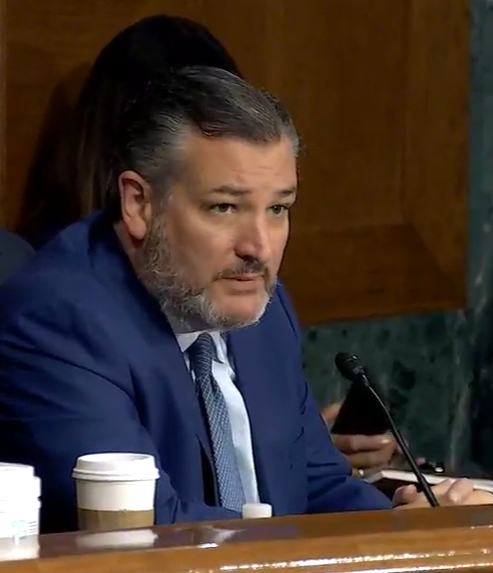The outspoken conservative U.S. Senate from Texas who serves as the Republican leader of the Commerce Committee on Monday shared details regarding a letter sent recently to the President/CEO of the Corporation for Public Broadcasting in which he objects to a “mandate that radio and television stations must engage in affirmative action to qualify for grant funding.”
The letter from Sen. Ted Cruz was sent to CPB head Patricia Harrison ahead of a corporation directors meeting scheduled for Monday (12/11).
According to Cruz, CPB board members recently voted to modify existing affirmative action mandates for publicly-funded media outlets like NPR “as a workaround to state anti-DEI legislation.”
Cruz is particularly concerned about how the modification runs counter to a Supreme Court ruling earlier this year that found traits such as a “plus-factor” in college admissions or employment are in violation of the 14th Amendment’s Equal Protection Clause.
As such, Cruz is challenging the legality of the requirements. And. he wants a response from Harrison and the CPB by December 22 “so that I may better assess CPB’s compliance with federal law and the Constitution,” he writes.
Specifically, Cruz has eight questions for Harrison:
- Do the previous CSG “diversity statement” requirements or the newly adopted
“community representation statement” requirements violate the Fourteenth Amendment
of the U.S. Constitution or Title VI of the Civil Rights Act of 1964? Why or why not? - How does CPB ensure “strict adherence to objectivity and balance in all programs or
series of programs of a controversial nature” in the public telecommunications it funds
while avoiding editorial “control over the content or distribution of public
telecommunications programs and services?” - The website of the federally funded Independent Television Service (“ITVS”)
prominently includes an “Impact” page to show how its documentaries are “[i]nspiring
audiences to take action” on controversial political issues like criminal justice reform.
Does ITVS adhere to “objectivity and balance?” - Is CPB statutorily obligated to fund ITVS?
- Is CPB statutorily obligated to fund the National Multicultural Alliance?
- Provide the “memo” prepared for the CPB Board of Directors regarding the proposed
community representation statement. - List all state laws that CPB, including its directors and staff, believed might “conflict”
with CSG diversity statement requirements or put stations in a “precarious position when it comes to state funding.” - Provide all versions of CPB’s personnel policies, Manager’s Guidebook, and diversity,
equity, and inclusion trainings for staff or leadership from Fiscal Year 2019 to present.
“Under the guise of diversity, CPB in fact stifles cultural and ideological diversity in public television and radio at a time when trust in mass media is at an all-time low,” he states in the letter. “CPB must strike a balance of encouraging objectivity in programs it funds without exercising editorial control or infringing on stations’ creative independence. But the way the CSG diversity amendment was debated — the tacit, but indifferent, recognition that the rules might violate the Constitution’s promise of equality; the knowing allusions to “our values” while excoriating “places like that” — suggests that CPB already knows which side it’s on. And that makes it less capable of fulfilling its statutory mission. The truth is that CPB can support a diversity of stations and programs without auditing individual stations to ensure their employees’ races align with the five racial categories CPB recognizes. It can respect editorial independence without paying PBS to regurgitate Hamas propaganda blaming Israel for an explosion at a Gaza hospital or NPR to blithely air audio of a surgical abortion.”
A Corporation for Public Broadcasting spokesperson tells RBR+TVBR CPB has received Cruz’s letter and will respond to it as requested.





